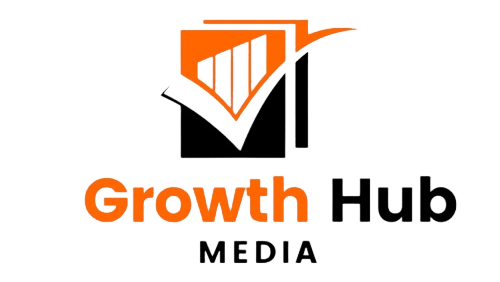Website cybersecurity has become an utmost concern for businesses, regardless of their size. With cyber attacks getting more sophisticated by the minute, it becomes extremely important to have cutting-edge security protections in place to ensure that no sensitive data is lost and trust from users is not broken. Here at Growth Hub Media, we focus on website optimization and development which in turn helps fortify our clients online platforms. Here are the top tips to improve your website security.

1. Procure SSL Certificates and HTTPS Encryption
Acquiring an SSL certificate and encrypting your website with HTTPS (HyperText Transfer Protocol Secure) is extremely important. Enforcing HTTPS middleware encrypts the connection string which in turn avoids hackers from grasping control over confidential user data like payment information and passwords. Google rewards websites that use HTTPS by ranking them higher which in turn helps increase the SEO rating of the website.
2. Routinely Change Plugins and Software Versions
Routinely changing the version of software and plugins is a must as out of date versions are highly prone to being hacked. It is necessary for your Content Management System (CMS) to be on the latest plugins, themes, and scripts alongside having the latest versions released. Where feasible, turn on auto update settings or schedule regular maintenance checks so that security holes can be patched.
3. Stronger Authentication Policies Should Be Enforced
Construct security measures by implementing strong password policies alongside multifactor authentication (MFA). Users should be instructed to generate highly intricate passwords and also require them to alter them after predetermined intervals. MFA adds another layer of protection by requiring one or more additional verification steps, such as sending a one-time password (OTP) or biometric authentication.
4. Purchase a WAF (Web Application Firewall) For Your Business
A Web application Firewall (WAF) is meant to protect your website against common attacks, such as SQL injection, cross site scripting (XSS) or even Distributed Denial of Service (DDoS) attacks. A WAF also serves to guard against harmful traffic. With the help of a good WAF, your website’s security can be strengthened greatly.
5. Active Auditing and Automating Vulnerability Scanning
Regular security audits and vulnerability scans should be executed as they assist in recognizing risks that are potentially threatening beforehand. Your website can also be scanned by tools such as OWASP ZAP, Nessus and Acunetix and they can suggest advanced security measures.
6. Encryption of Sensitive User Data
Implement encryption algorithms like AES (Advanced Encryption Standard) and RSA (Rivest Shamir Adleman) in order to protect user data. Passwords and financial information are classified to be sensitive data and encrypting such data means that, even if data is leaked, it cannot be accessed using unauthorized means.
7. Adopt Secure Coding Guidelines
To mitigate vulnerabilities in web applications, secure coding must be enforced. There are various methods to improve the security posture of an application like input sanitation, output encoding, and the use of parameterized queries which limits the chances of SQL injection and cross-site scripting.
8. Restrict Access and Set Privileges
Full access to the website backend is not necessary for all users. Using role-based access control (RBAC), access rights can be assigned according to the user’s role. This minimizes risks of unintentional or deliberate data and security policy breaches.
9. Allow Regular Backups
Regular backups protect your website from severe cyberattacks or data loss. Place your website on secure offsite facilities. Use an automated backup system to ensure regular update intervals to the backup timeline.
10. Set Up and Respond to cybersecurity Threats
Tracking activity and detecting suspicious behavior can be done using security monitoring tools like Sucuri, Wordfence, or Cloudflare. Alerts can be set up for changes from abnormal logins or unauthorized changes and those threats need to be acted upon quickly before escalation.
Conclusion
Like everything in the tech world that is rapidly evolving, a website’s security demands preemptive steps and constant vigilance. With effective strategies in place, companies can protect their digital footprint, user information, and earn brand loyalty. Here at Growth Hub Media, we specialize in developing and securing websites to fulfill your business objectives. Gain an advantage in the digital landscape by fortifying your website today!
Get in touch with Growth Hub Media – the reliable website development and enhancement partner – for professional website security services.



